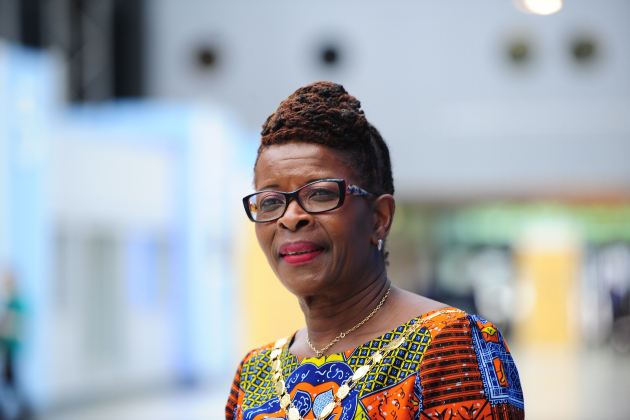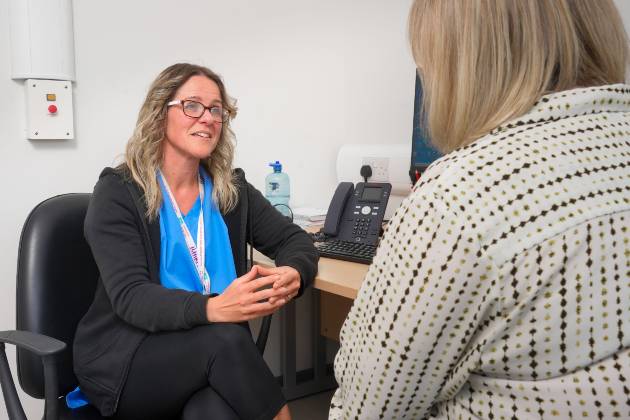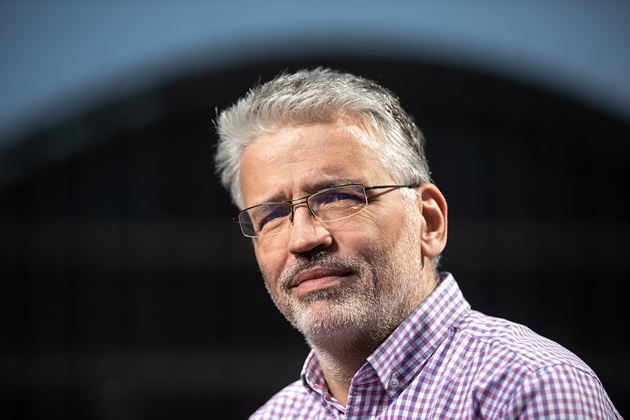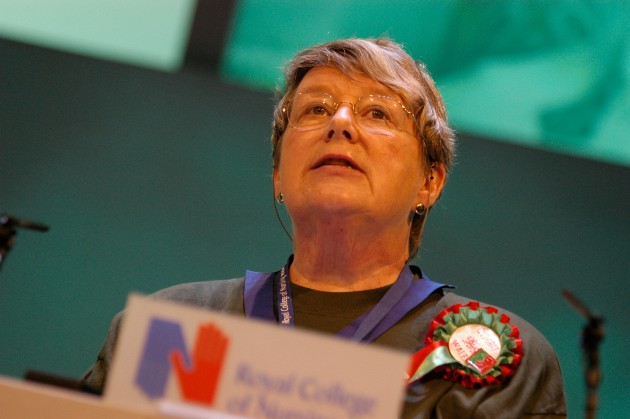Being RCN President may be an obvious pinnacle in a career, but for Dr Cecilia Akrisie Anim CBE, nursing goes way beyond this. While she became RCN President in 2014, her passion for nursing started long before, when family in her native Ghana showed her the power of the profession. And it also continues into the present day, with grassroots nursing and improving the realities for Black and internationally educated nurses still underpinning her daily and wider ambitions.
In November, Cecilia was invited by King Charles to a reception at Buckingham Palace to commemorate the far-reaching contributions of internationally educated nursing staff and midwives. The royal soirée, with around 400 attendees, was also to mark the 75th anniversary of the NHS. Throughout the years, there have been endless ways in which internationally educated nursing staff have crafted the health care service into the much-loved public institution it still is. But while the evening's recognition was welcome, Cecilia argues that there's still much work to be done when it comes to recognising these vital nursing staff accordingly.
Following the event, we spoke to Cecilia to hear the more routine ways that internationally educated nursing staff should expect to be supported at all stages of their career.
‘Proud of my background’
While societal attitudes have transformed over the decades since Cecilia moved to the UK in 1972, she has continued to see racial inequality against both Black and internationally educated nursing staff ever since, working as a nurse, and as President of the RCN. The way racism presents itself has simply changed. “As RCN President, racism was there, but you get it in a polished way,” Cecilia recalls. “But when someone is racist, it doesn't matter how they dress it up, you still always pick up on it.”
In contrast, Cecilia remembers her first exposure to racist behaviours within the NHS. Sadly, it was immediate – at her training interview, she found herself still waiting to be called up after 2.5 hours.
When she finally enquired as to why she was still waiting, the receptionist admitted she’d presumed her maiden name, Mills, must have belonged to a White woman. Cecilia wasn’t offended, but noted it as the first of many similar incidents.
She went on to specialise in sexual and reproductive health, but in an early stint in geriatrics, remembers patients rubbing their hands on her skin to see if “something would come off”, and telling her they’d never seen a Black person. But Cecilia continued to blame ignorance, noting it was the same patient groups who invited her for roast dinners and asked about Ghana. “I was happy to answer, because I’m proud of my culture and background,” Cecilia explains.
‘Black colleagues are still less likely to get promoted’
Since then, however, she feels there hasn’t been enough progress in racial equality. Cecilia points out that Black nursing staff are still referred to the Nursing and Midwifery Council more than their White counterparts, with Black nurses less likely to get promoted.
And, she argues, internationally educated nursing staff are doing significantly more than just representing their patient demographics, but they aren’t often valued as such. If they travelled to the country to pursue nursing, the country should support them back. Broadly, this could mean streamlining recruitment away from bogus agencies and ensuring robust inductions and mentorship.

Losing confidence in the system
Day-to-day, better cultural awareness should go some way in making internationally educated nursing staff feel more accepted and valued, suggests Cecilia.
This wasn’t always the case when Cecilia started out. So, shortly after settling in North London, Cecilia achieved her ambition of becoming an RCN steward. While initially inspired by the introduction of clinical grading, she soon gravitated towards tackling racial injustices and other issues in the workplace, representing her internationally educated and Black colleagues on these issues to their employer.
Before long, Cecilia was an RCN health and safety rep, which further exposed her to the inequalities experienced by Black nursing staff. Cecilia identifies a “blame culture” as disproportionately affecting these cohorts in employment issues, which makes them lose confidence to the detriment of their work, wellbeing, and self-value. As a result, she still calls for greater equity in this area, imploring senior leadership to pay closer attention to cause and effect, and steer clear of making judgements before completing investigations.
“If nursing staff are deprived of climbing the professional ladder because of their colour, they can really lose morale. It’s changing, but too slowly – why are we still having to talk about racism and inequality?” Cecilia wants to know. “It shouldn’t be needed.”
Independence within a community
A defining note of Cecilia’s speeches as President was the ‘believe in yourself’ messaging. And while regular speeches aren’t in her schedule anymore, the sentiment remains. For internationally educated and Black future nursing staff, Cecilia has some words of wisdom. First is to identify their goals, asking themselves questions such as, “how should I give patients the care I’d love to have?” and “how will I not tolerate negativity?”
Later, they should seek out professional growth. “If you’re not promoted, find out why,” Cecilia presses. “I once applied for a sister post on a Friday, but was rejected by Saturday. How could their minds be set that quickly?”
“Don’t let anyone take you from your course in life,” is another piece of advice. “If you have to challenge, do so with grace and robustness that holds people accountable. And if you’re lucky enough to be surrounded by mentors and allies, make use of them.”
Words by Ellie Philpotts
Find out more
- United Nations’ International Migrants Day takes place on 18 December.
- We have guidance for internationally educated nursing staff – find out more here.
- See our case studies of RCN members who we’ve recently helped with international issues.








